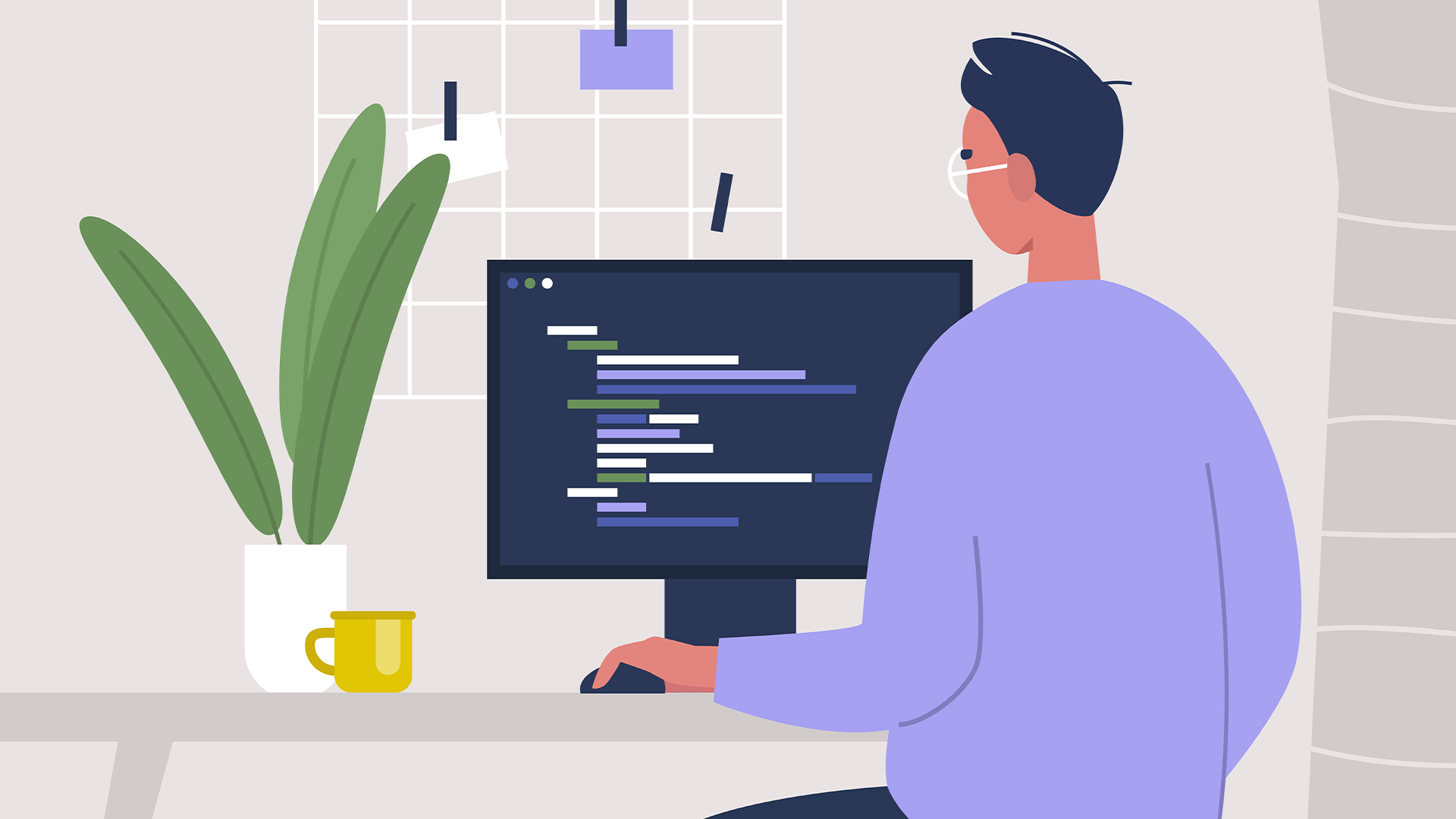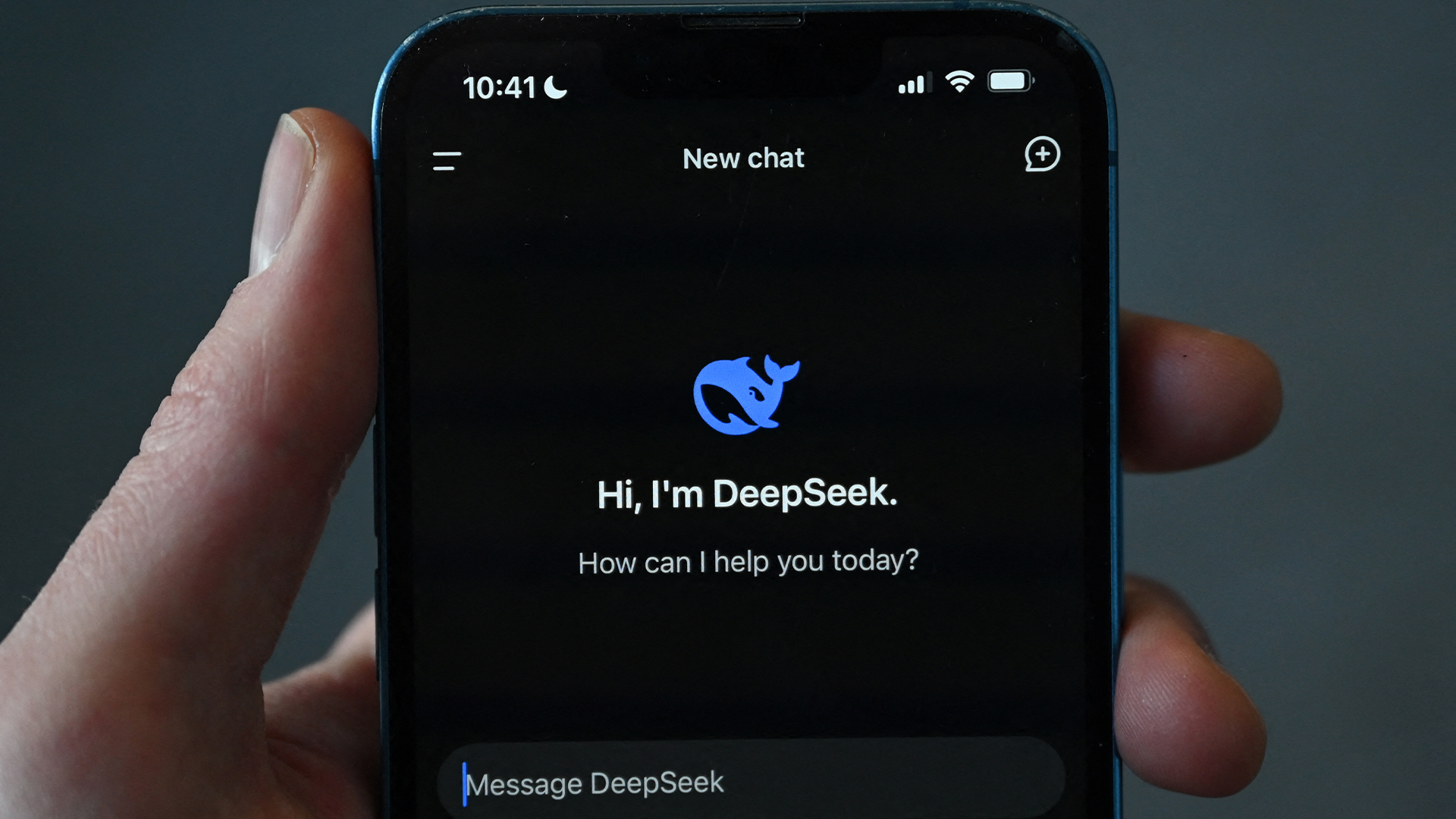‘We’re trading deep understanding for quick fixes’: Junior software developers lack coding skills because of an overreliance on AI tools – and it could spell trouble for the future of development
The new generation of junior devs is shipping code faster than ever, but many lack critical foundational skills


Junior software developers may have become too reliant on AI tools and it’s undermining core coding skills, according to claims by tech blogger and programmer Namanyay Goel.
In a blog post that’s sparked intense discussion in the industry, Goel wrote that he’s been troubled by the behavior of new developers he’s spoken to who are using some sort of AI coding assistant.
“Every junior dev I talk to has Copilot or Claude or GPT running 24/7. They’re shipping code faster than ever. But when I dig deeper into their understanding of what they’re shipping? That’s where things get concerning,” Goel said.
Though the code works, new devs are unable to explain how or why it works, Goel noted, or are stumped on questions about edge cases. Foundational knowledge is missing as junior developers are not learning from scratch, he added.
“We’re trading deep understanding for quick fixes, and while it feels great in the moment, we’re going to pay for this later,” Goel said.
Anecdotally comparing today’s developers with those of his generation who had to use Stack Overflow when they encountered an error, Goel described how learning from experienced developers is far superior to learning through AI tools.
“AI gives you answers, but the knowledge you gain is shallow. With StackOverflow, you had to read multiple expert discussions to get the full picture. It was slower, but you came out understanding not just what worked, but why it worked,” Goel said.
Get the ITPro daily newsletter
Sign up today and you will receive a free copy of our Future Focus 2025 report - the leading guidance on AI, cybersecurity and other IT challenges as per 700+ senior executives
Developers need to use AI tools correctly, expert suggests
Using AI tools can be a useful learning tool, according to Peter Schneider, Senior Product Manager at Qt Group, but they need to be used in the right way.
“If junior developers generate code with AI assistants and deploy the code to digital products without truly understanding it, then they run into the risk of introducing suboptimal code. It's also worth noting that whenever junior developers use AI-generated code, they're not really learning how to write and review code themselves,” Schneider told ITPro.
“That's why we recommend to our customers today that they use AI assistants to augment the learning experience of junior developers, not to replace coding itself,” he added.
There are clear benefits to using AI coding tools, but junior developers need to remember that AI isn’t flawless, said Faye Ellis, principal training architect at Pluralsight.
“It can still produce inaccurate outputs, and though large language models (LLMs) are remarkable, their current ability to learn and improve from interactions remains quite limited, meaning progress may feel uneven for some time,” Ellis told ITPro.
“Overreliance on AI tools could stop junior developers from developing essential skills, as generating code with AI is not the same as fully understanding it. Businesses should still invest in training developers to improve their coding expertise, rather than rely solely on AI,” she added.
Are AI coding tools worth the risk?
It’s not just workers' skill sets being undermined that developers need to worry about. Various reports over the last few months have put the quality of AI-generated code up for debate as well.
A report from Harness earlier this year found that 59% of developers reported problems with deployments in AI-generated code at least half of the time.
While 92% said AI tools had increased the volume of code shipped, they also said this increased the ‘blast radius’ of bad code.
67% of developers reported more time debugging AI-generated code and 68% spent more time fixing vulnerabilities after adopting AI tools, the report found.
Bogging developers down in these remediation tasks is also inflicting a serious financial toll on organizations and potentially negating the productivity gains afforded by the tools, Harness warned.
AI is causing a skills concern across the board
Software developers aren't the only professionals becoming over-reliant on AI tools, however, and this is a problem that could spread across a range of professions in years to come.
A recent study from Microsoft examining the impact of AI on knowledge workers found the increased use of the technology could be impacting their critical thinking skills.
RELATED WHITEPAPER

The study, conducted in collaboration with researchers at Carnegie Mellon University revealed a deterioration in certain cognitive faculties among those who frequently used AI tools.
Researchers warned the use of the technology is making workers unprepared to deal with anything other than routine tasks in their daily workflow.
“While AI can improve efficiency, it may also reduce critical engagement, particularly in routine or lower-stakes tasks in which users simply rely on AI, raising concerns about long-term reliance and diminished independent problem-solving," researchers said.
MORE FROM ITPRO
- AI coding tools are finally delivering results for enterprises
- AI-generated code risks: What CISOs need to know
- Can AI code generation really replace human developers?

George Fitzmaurice is a former Staff Writer at ITPro and ChannelPro, with a particular interest in AI regulation, data legislation, and market development. After graduating from the University of Oxford with a degree in English Language and Literature, he undertook an internship at the New Statesman before starting at ITPro. Outside of the office, George is both an aspiring musician and an avid reader.
-
 Cleo attack victim list grows as Hertz confirms customer data stolen
Cleo attack victim list grows as Hertz confirms customer data stolenNews Hertz has confirmed it suffered a data breach as a result of the Cleo zero-day vulnerability in late 2024, with the car rental giant warning that customer data was stolen.
By Ross Kelly
-
 Lateral moves in tech: Why leaders should support employee mobility
Lateral moves in tech: Why leaders should support employee mobilityIn-depth Encouraging staff to switch roles can have long-term benefits for skills in the tech sector
By Keri Allan
-
 AWS expands language support for Amazon Q Developer
AWS expands language support for Amazon Q DeveloperNews AWS has expanded support for languages in Amazon Q Developer, making it easier for developers to code in their first language.
By Nicole Kobie
-
 AI was a harbinger of doom for low-code solutions, but peaceful coexistence is possible – developers still love the time savings and simplicity despite the allure of popular AI coding tools
AI was a harbinger of doom for low-code solutions, but peaceful coexistence is possible – developers still love the time savings and simplicity despite the allure of popular AI coding toolsNews The impact of AI coding tools on the low-code market hasn't been quite as disastrous as predicted
By Ross Kelly
-
 NetSuite targets UK customer productivity gains with new AI tools
NetSuite targets UK customer productivity gains with new AI toolsNews Oracle NetSuite has announced new AI tools and features for UK customers aimed at supercharging productivity.
By Rory Bathgate
-
 ‘Frontier models are still unable to solve the majority of tasks’: AI might not replace software engineers just yet – OpenAI researchers found leading models and coding tools still lag behind humans on basic tasks
‘Frontier models are still unable to solve the majority of tasks’: AI might not replace software engineers just yet – OpenAI researchers found leading models and coding tools still lag behind humans on basic tasksNews AI might not replace software engineers just yet as new research from OpenAI reveals ongoing weaknesses in the technology.
By George Fitzmaurice
-
 ‘Awesome for the community’: DeepSeek open sourced its code repositories, and experts think it could give competitors a scare
‘Awesome for the community’: DeepSeek open sourced its code repositories, and experts think it could give competitors a scareNews Challenger AI startup DeepSeek has open-sourced some of its code repositories in a move that experts told ITPro puts the firm ahead of the competition on model transparency.
By George Fitzmaurice
-
 GitHub's new 'Agent Mode' feature lets AI take the reins for developers
GitHub's new 'Agent Mode' feature lets AI take the reins for developersNews GitHub has unveiled the launch of 'Agent Mode' - a new agentic AI feature aimed at automating developer activities.
By Ross Kelly
-
 The world's 'first AI software engineer' isn't living up to expectations: Cognition AI's 'Devin' assistant was touted as a game changer for developers, but so far it's fumbling tasks and struggling to compete with human workers
The world's 'first AI software engineer' isn't living up to expectations: Cognition AI's 'Devin' assistant was touted as a game changer for developers, but so far it's fumbling tasks and struggling to compete with human workersNews Devin, a coding assistant from Cognition AI hailed as the world's 'first AI software engineer', hasn't quite lived up to expectations, according to researchers.
By Nicole Kobie
-
 A sign of things to come in software development? Mark Zuckerberg says AI will be doing the work of mid-level engineers this year – and he's not the only big tech exec predicting the end of the profession
A sign of things to come in software development? Mark Zuckerberg says AI will be doing the work of mid-level engineers this year – and he's not the only big tech exec predicting the end of the professionNews The Meta founder thinks 2025 will herald a profound shift in the software engineering profession
By Solomon Klappholz